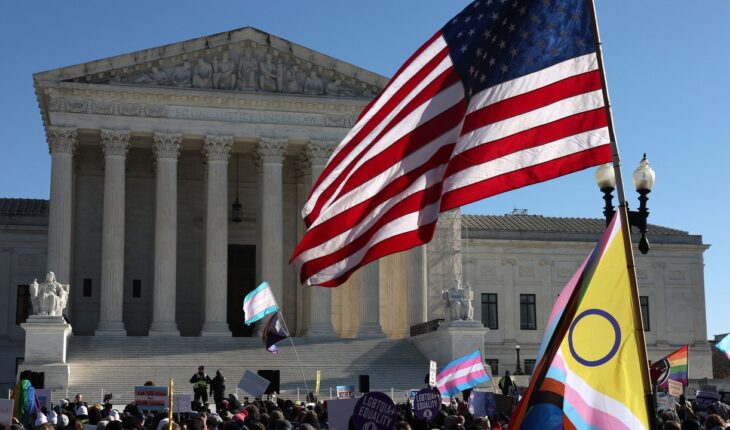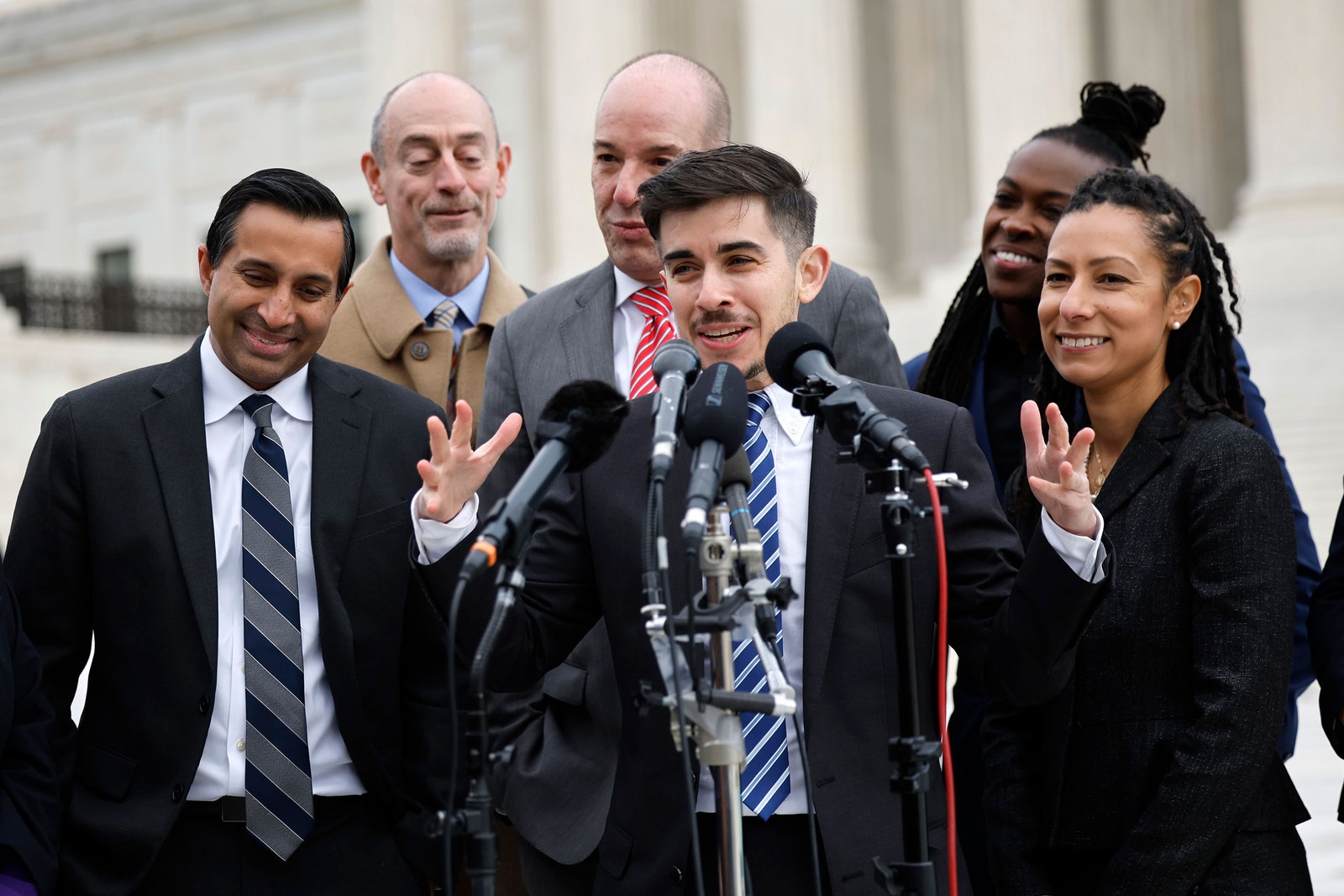If the Supreme Court of the United States were a normal court applying long-established principles and precedents to the issues of the day, United States v. Skrmetti, which asks the justices to decide whether Tennessee’s wholesale ban on gender-affirming health care for youth is unconstitutional, would be an easy case. No, the controversy doesn’t require them to weigh in on whether this care is good or bad policy, to address the science behind it, or even to take sides on a political, social, and medical debate that has roiled Washington, our national politics, and a Democratic Party still at sea on how to meet the moment. The dispute doesn’t even call on them to strike down the ban.
At its most basic, this case simply calls on the Supreme Court—to borrow from Justice Elena Kagan—to act like a court. And here, the court only has one issue before it: to decide whether a law that prohibits parents, in consultation with their doctors, from seeking out puberty blockers, hormone therapy, and other treatments for their children’s gender dysphoria amounts to sex discrimination prohibited by the Constitution’s guarantee of equality under the law.
If it does, then that’s all that needs to be decided. “We think the Court here just needs to recognize the sex-based classification in this statute and send the case back,” Elizabeth Prelogar, the Justice Department’s outgoing solicitor general, told the justices on Wednesday. She has been on the job long enough to know you cannot ask too much of this court. And so she threaded a careful needle—patiently addressing questions from Justice Samuel Alito about how European nations have dealt with transgender care for minors; from Chief Justice John Roberts about “evolving standards” in treatment in this area; and from Justice Brett Kavanaugh about any potential impact on girls’ sports, as well as the supposed neutrality of the Constitution on an issue that should be left to the democratic process.
“The Constitution doesn’t take sides on how to resolve that medical and policy debate,” Kavanaugh insisted, echoing his own musings when he voted to overrule Roe v. Wade. “The Constitution’s neutral on the question.” Prelogar was ready for that: “Well, I do think that the Constitution takes a position that individuals are entitled to equal protection of the law.”
Indeed, the reason we have a 14th Amendment in the first place is to put a check on the democratic process itself—to prevent democratically elected governments from singling out their own citizens because of their race, their gender, or some other so-called immutable characteristic. When a federal appeals court blessed Tennessee’s experiment against transgender youth last year, the dissenting judge, Helene White—an appointee of George W. Bush—explained in crystal clear terms how her colleagues lost their way on this point. “In the normal course, the Constitution contemplates the states acting as laboratories of democracies to resolve the controversies of the day differently,” White wrote. “But when a fundamental right or freedom from discrimination is involved, experimentation has no place.” In other words, just because you just won a majority in a free and fair election doesn’t mean you can just target certain people or groups for sport. Does that ring a bell?
For many decades, beginning in the 1970s, it has been black-letter law that policies that treat men or women differently are subject to heightened scrutiny—an analysis that requires judges to take a hard look at laws that single out a person’s sex for disparate treatment. Before becoming a judge, Ruth Bader Ginsburg was a key legal architect behind this line of cases—culminating in a 1996 landmark, authored by Ginsburg herself, that affirmed once and for all that “generalizations” and “stereotypes” about the proper place of women in society no longer could justify policies that left them worse off.
Lawyer and transgender rights activist Chase Strangio speaks after arguing before the U.S. Supreme Court on December 04, 2024 in Washington, DC.by Kevin Dietsch/Getty Images.






